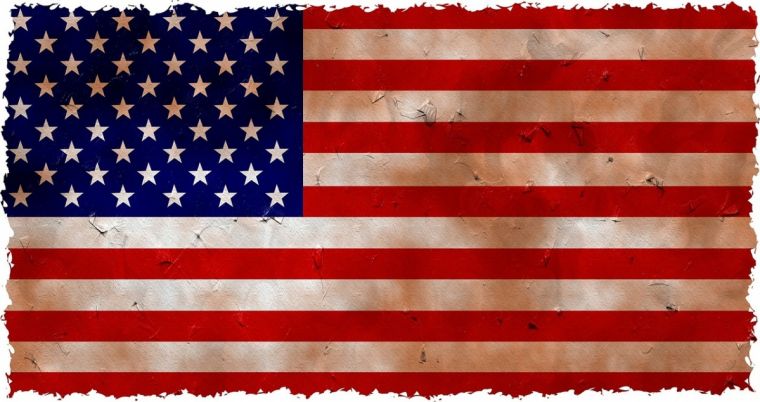Trump vs Clinton - How Can Christians Help Heal A Divided Nation?

What happens the morning after the night before?
Every Presidential election is controversial. Every Presidential election has drama. Every Presidential election is a cut-throat battle in the trenches.
This one has been different, though. Even seasoned White House watchers have been shocked by the viciousness, tactics and content of this campaign. Outright lies have been told. Violence has lurked under the surface and sometimes bubbled over. Denigrating whole communities has become commonplace – candidates either leading or reflecting the views of some of their constituencies.
In many ways, though there will be relief that election season is now over, the problems are only just beginning. The phony war is over and now battle lines will be drawn. Whichever candidate is announced as the winner, there is a chance of legal battles and constitutional questions rumbling on. This may provide the backdrop to a further fracturing of the American demos.
Can it be avoided? If so, what role should the Church be playing?...
As Brits we need to show some humility here. I'm not American, don't get a vote and the election doesn't directly affect my life. However, as someone who loves America (and Americans!) I hope to offer a couple of insights from our own experience of Brexit and its aftermath... Here are three things to think about.
1) When the decision is made, people must come together
Part of the reason Brexit has felt so deeply difficult in the UK is that the process is dragging on and there's no end in sight – people on both sides are anxious. Despite the result of the referendum and ongoing assurances from the Prime Minister that it will be honoured, the process is long and tortuous.
Irresponsible reporting and interventions by politicians have poured fuel on the fire, meaning that the UK finds itself in a limbo that feels febrile and fractious.
The Presidential election will be concluded much more quickly. Barring some kind of 2000 Bush/Gore style legal battle, there will be a President-elect ready to take over in January. This means there's a chance for people to come together immediately. It doesn't, of course, mean you need to be happy about the result. Yet the integrity of democracy, indeed the Republic, depends on both the voters and the candidates respecting and trusting the process.
2) Divisions in society go way beyond elections
There is a cavernous divide in American society. This election cycle hasn't created it – just brought it to the fore. Anyone who expects life to simply 'go back to normal' is engaging in wishful thinking. The Brexit vote did the same in the UK – it exposed how far apart sections of our country had drifted.
American society has long had divisions along racial lines as well as over social issues such as abortion. The divide isn't simply Trump voters vs Clinton voters, or Republicans vs Democrats. There are many other fronts on which these cracks are showing. Rural populations, swathes of the South and post-industrial areas in the Rust Belt are now light years away from the media, political and cultural hubs on either coast.
Brexit tells us that these divisions can sneak up on us and take us completely by surprise. In the aftermath of Brexit, I've been aiming to breach as many of these divisions as I can – especially through social media. Rather than remaining in the 'bubble' of like-minded people, I've been trying to discuss issues with people I profoundly disagree with. This is surely the only way forward for Americans?
Social media offers us unprecedented opportunities to speak to people across various divisions. We have to get past our reflex instinct to label the other side, though. You won't get very far by posting that all Trump's supporters are racists or all Clinton supporters are baby killers. Try empathy. Imagine yourself in the other person's shoes. It's what politics is all about – mediating differences between citizens. It's the only thing that has ever kept a democracy healthy and it's urgently needed – on both sides of the pond – right now.
3) The Church's job is to be a peacemaker and reconciler
"Make me a channel of your peace," prayed St Francis. More than most disciples, he understood that the role of the Church wasn't to be a power-broker or a political bloc. The Church is uniquely placed to help heal American society – if it chooses to leave hard-headed partisanship to one side and actually embrace the other.
The Church is the biggest civil society institution in America and has members in every community of every political persuasion. There are Christians in every state of the Union, who, starting today could begin the process of reaching out across the aisle in friendship and Christian love.
Don't know anyone in your community who voted for the other candidate? Call up a church across town and get together. Meet for food and conversation. Pray together, for reconciliation and for each others' well being. How powerful a witness would it be if black majority churches, Hispanic congregations, WASP communities, Catholic parishes and many more could get together to help rebuild the sense of unity in their areas? After all, Jesus prayed that we might be one so the world would know about His love. It might not only be a good witness – it might be one of the only things able to bring back the USA from the prospect of unrest and further fragmentation.
Follow Andy Walton on Twitter @waltonandy











